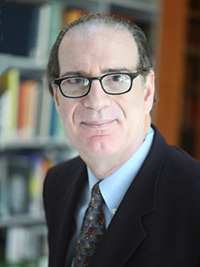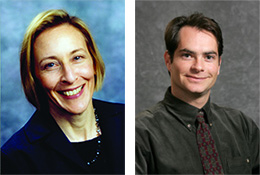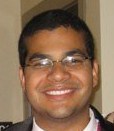
By Leslie A. Gordon
Arnold & Porter has announced it will fully fund the Clinical Teaching Fellowship at Berkeley Law’s Death Penalty Clinic (DPC) for the current fiscal year. The law firm’s generous gift of $114,000 recognizes the clinic’s critical contribution to a court case that invalidated California’s three-drug lethal injection protocol.
The 2013 ruling in Sims v. Department of Corrections and Rehabilitation held that the agency failed to comply with the state’s Administrative Procedure Act (APA) when it altered its execution regulations. As a result, the appellate court invalidated the protocols in their entirety.
The landmark ruling culminates four years of work by law faculty and students, as well as the clinic’s Lethal Injection Project staff attorneys. They all worked closely with Arnold & Porter, which represented the plaintiff in the case.
The ruling has statewide impact: California has the nation’s largest death row population, with 746 condemned prisoners. It follows a 2006 federal court ruling that California’s injection procedures amounted to “cruel and unusual” punishment.
“At this point, California does not have a lethal injection execution procedure,” said Professor Elisabeth Semel, the director of the Death Penalty Clinic. “The court told the department to ‘go back to drawing board.’”
Hands-on clinical work
The clinic helped collect a wide range of comments opposing the three-drug protocol by experts in the legal community and in the fields of anesthesiology, pharmacology, veterinary medicine, and medical ethics. During the drafting of the complaint and briefings, the clinic consulted with Arnold & Porter on substantive lethal injection issues, the procedural flaws in the department’s rulemaking efforts, and the APA.

“The Department of Corrections tried to ram through new execution protocols without regard for the law,” said Professor Ty Alper, the clinic’s associate director. “The record developed by the lawyers and students working with the clinic laid the groundwork for this successful lawsuit.”
Launched in 2007, the teaching fellowship has enabled the clinic to increase student enrollment and expand its docket, Semel said. It is supported entirely by outside contributions.
“Arnold & Porter’s willingness to fund the program this year is a significant and gratifying endorsement. The firm’s gift raises the profile of the clinic’s fellowship in a way that we hope will generate enthusiasm among potential new donors and our loyal supporters,” Semel said.
Clinic students learn lawyering skills that are transferable to multiple practice areas, Semel noted, a fact not lost on Arnold & Porter.
“We’ve had a close relationship with Berkeley Law for decades, and we depend on the school to turn out high-caliber, well-trained lawyers,” said Arnold & Porter partner Doug Winthrop. “Our support for the fellowship is a wonderful confluence of our firm’s long-held respect for the law school, our support for clinical education, and our deep involvement in significant death penalty work.”
“The firm has a long history of involvement in litigation opposing the death penalty,” said Steven L. Mayer, Boalt ’74, senior counsel at Arnold & Porter, who successfully argued Sims in the Court of Appeal.
Clinic fellows

The clinic’s current fellow, Bidish Sarma, joined the program in 2012. He previously served as the deputy director of the Capital Appeals Project in New Orleans, where he represented indigent death row inmates on appeal. He now supervises students defending death penalty cases in Arizona, Georgia, and Louisiana.
“Under the clinic’s mentorship, I’ve learned how to effectively represent clients facing the death penalty in jurisdictions that fail to provide quality representation the Constitution requires, let alone what our clients deserve,” Sarma said. “The clinic provides an unparalleled opportunity to Berkeley Law students, and the fellowship extends that opportunity even further. It also empowers me to develop the skills I need to mentor students in the years to come.”
The clinic is currently engaged in defending both individuals and capital cases in California, Alabama, Arizona, Louisiana, and Georgia. It has also assisted in the defense of capital cases in Texas, Virginia, and North Carolina and has played a key role in several successful U.S. Supreme Court cases involving the right to a jury selected free of race discrimination.
Working on capital cases is often transformative for Berkeley Law students, many of whom go on to pursue criminal justice careers. More than 60 clinic alumni are employed by public defender offices or public interest non-profits. Other alums working at large law firms continue to handle capital cases pro bono, like the attorneys at Arnold & Porter.
The clinic’s first teaching fellow, Kate Weisburd, supervised the defense of four indigent capital defendants in pre-trial cases in the South. All four cases were resolved without the imposition of the death penalty. Weisburd is now the founder and director of the East Bay Community Law Center’s Youth Defender Project.